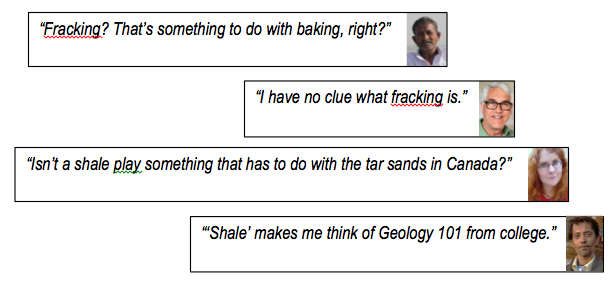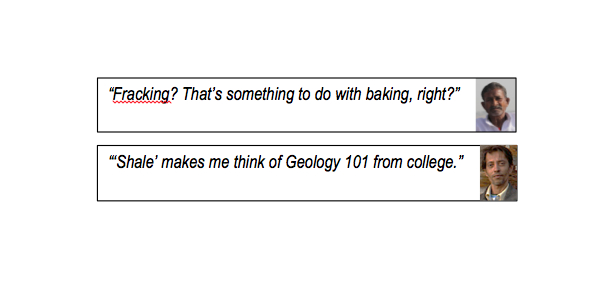 When you work in oil and gas, it’s easy to assume that everyone speaks your language – and that even people outside the industry know what you’re talking about when you mention “fracking” or “shale plays” or “unconventional resources.” But as we found out during a recent trip to a suburban Houston shopping center, this isn’t necessarily the case. Even as the debate over fracking and fracking-related regulations continues to receive extensive media coverage, it may be a mistake to assume that “fracking” is a household word.
When you work in oil and gas, it’s easy to assume that everyone speaks your language – and that even people outside the industry know what you’re talking about when you mention “fracking” or “shale plays” or “unconventional resources.” But as we found out during a recent trip to a suburban Houston shopping center, this isn’t necessarily the case. Even as the debate over fracking and fracking-related regulations continues to receive extensive media coverage, it may be a mistake to assume that “fracking” is a household word.

